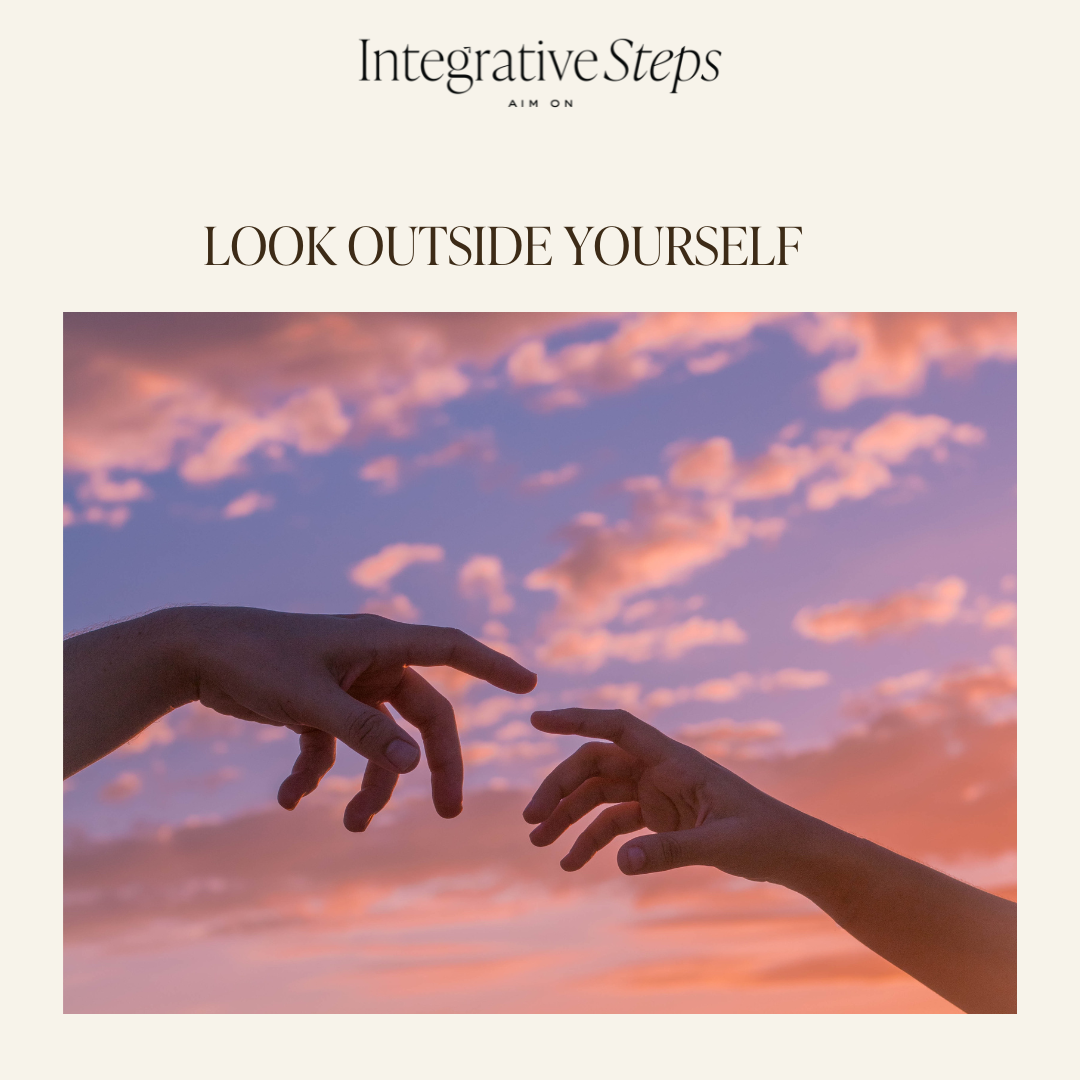How to Look Outside Yourself and Improve Your Relationships
Tips that can help you look outside yourself and improve your relationships

Tips that can help you look outside yourself and improve your relationships

Human nature is self-focused. When we walk into a room, give a presentation, or are part of any sort of social setting, we often wonder what people are thinking about us. And the reality is they are likely not because they’re wondering the same thing. What are people thinking about me?
This self-focus can make us feel anxious, insecure, and defensive. It can also make us project our own feelings and thoughts onto others and assume that they share our perspectives or judge us harshly. This can lead to misunderstandings, conflicts, and resentment in our relationships.
So how can we look outside ourselves and improve our relationships?
How can we shift our focus from ourselves to others and understand their needs, feelings, and views?
How can we be more empathetic, supportive, and respectful of others?
Here are some tips that can help you look outside yourself and improve your relationships:
This can help you develop empathy, which is the ability to understand and share the feelings of another person. Empathy can help you build trust, rapport, and connection with others.
For example, if you see someone who looks sad or angry, instead of taking it personally or avoiding them, you can try to imagine what might be causing their mood and how you can help them.
By imagining what might be going on with someone else and what you can do to support them, you can show them that you care and that you are there for them. You can also avoid making assumptions or judgments about them based on your own feelings or thoughts.
This can help you express appreciation, gratitude, and admiration for others. It can also help you boost their self-esteem, confidence, and happiness.
For example, if you see someone who did a great job or achieved something remarkable, instead of feeling jealous or insecure, you can congratulate them and praise their efforts or skills.
By lifting someone up with a compliment or a positive feedback, you can show them that you respect and value them and that you are happy for them. You can also avoid projecting your own insecurities or fears onto them based on your own standards or expectations.
This can help you be more compassionate, understanding, and forgiving of others. It can also help you avoid taking things personally or reacting negatively to others.
For example, if you see someone who is rude or impatient with you, instead of getting angry or defensive, you can try to understand that they might be under stress or pressure.
By being aware that someone might be having a tough day or feeling insecure, you can show them that you are not offended or hurt by their behavior and that you are willing to give them the benefit of the doubt.
For many people, public speaking is one of the most stressful and nerve-wracking experiences. One of the main reasons is that we tend to focus too much on ourselves and how we are perceived by the audience.
However, if we shift our focus from ourselves to the audience and how we can serve them and help them grow and learn, we can significantly reduce our discomfort and anxiety. We can also improve our communication skills and effectiveness.
For example, if you are giving a presentation on a topic that you are passionate about or knowledgeable about, instead of worrying about what the audience thinks of you or how you look or sound, you can focus on how you can share your passion or knowledge with them and how you can make it interesting and relevant for them.
By focusing on how you can serve the audience and help them grow and learn, you can show them that you are confident and enthusiastic about your topic and that you care about their needs and interests.
Of course, looking outside yourself does not mean that you should neglect yourself or your own feelings and thoughts. There is a time and place to be self-focused and to take care of your own well-being and growth. For example, you can practice self-care, self-compassion, self-love, self-expression, self-improvement, etc.
However, there are also many times when it’s simply not about you and when you can benefit from looking outside yourself and improving your relationships with others. For example, you can practice empathy, appreciation, respect, compassion, understanding, etc.
By finding the balance between being self-focused and looking outside yourself, you can enhance your personal and professional life.
You can also make a positive difference in the world.